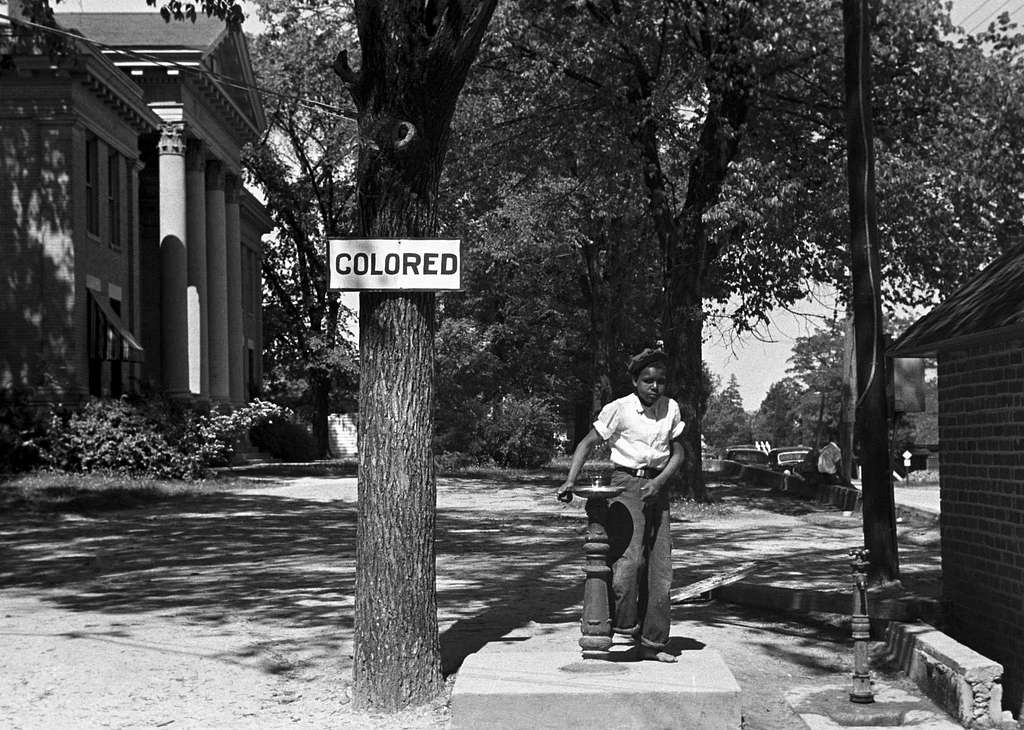In 2008, on one of those magical summer evenings in New York City, when the streets buzzed with the hive of humanity in all of its colorful permutations, I attended the play Thurgood at Broadway’s Booth Theater.
The one-man performance featured Lawrence Fishburne as Thurgood Marshall, an esteemed civil rights lawyer, and later the first African American Supreme Court Justice, who served from 1967 until his retirement in 1991.
The play began with Fishburne portraying an elderly Marshall and then, over the incredible 90-minute performance, Fishburne deftly time travels his character backward to his earliest days that include his fabled stint as an anti-segregation lawyer for the National Association for the Advancement of Colored People (NAACP).
It was in that role that Marshall was the lead counsel for the NAACP in the historic Brown v. Board of Education of Topeka case, litigated successfully before the Supreme Court in 1952 and later settled in 1954.
The case wiped out the previous ruling of the Supreme Court’s Plessy v. Ferguson decision in 1896, also known as “separate but equal” segregationist policies that were anything but equal in quality for African Americans. This included water fountains, restrooms, restaurants, and schools, among so many other American facets of life that Whites took for granted, but were denied to African Americans.

Thanks to the 9-0 decision in the Brown v. Board of Education of Topeka, in which the Court ruled that it was unconstitutional for that, or any other, city to deny enrollment for black families that wished to attend the schools of their choice and not segregated facilities. The Court declared that “separate educational facilities are inherently unequal.”
That did not settle the matter then, of course, but the decision that Marshall litigated on behalf of the NAACP could be viewed as the beginning of the civil rights movement in America.
Jump ahead to 1991, when Marshall’s replacement Clarence Thomas was nominated despite disturbing claims of sexual harassment by the courageous law professor Anita Hill. The all-white, male Senate Judiciary Committee, headed by then-Senator Joe Biden, treated the former colleague of Thomas in an adversarial and disrespectful manner.
Thomas took a page from what could be labeled today as the Brett Kavanaugh playbook, using anger to dismiss Hill’s accusations and calling the entire hearing a “high-tech lynching… You will be lynched, destroyed, caricatured by a committee of the US Senate rather than hung from a tree.”
His strategy, coupled with Biden’s tone-deaf chairmanship, worked and Thomas was narrowly confirmed by the Senate. (Biden, 28 years later (or too late), and shortly after announcing his 2020 presidential candidacy later apologized to Hill, who refused to accept Biden’s obvious politically orchestrated mea culpa.)
The confirmation of Thomas to a lifetime seat on the US Supreme Court was a mistake then and an even bigger misstep today. The rancid cloud of recent scandals surrounding Thomas and his wife Ginni would land the rest of us before a judge with the first whiff of financial shenanigans. But, unlike the nine justices, who apparently have zero oversight, we have to obey the laws.
We could not, for example, claim hundreds of thousands of rental income on our tax forms from a company that has not existed since 2006, as the Washington Post recently reported.
And, if we were somehow in charge of adjudicating cases such as Roe v. Wade without bias, would we not want to distance ourselves from taking freebee, luxury vacations on yachts and private jets, from billionaire, Nazi memorabilia-collecting, Republican megadonor such as Harlan Crow?
ProPublica, who broke the Thomas’ scandal story, wrote that the lavish gifts to the justice and his wife “have no known precedent in the modern history of the US Supreme Court.” And, it added, “These trips appeared nowhere on Thomas’ financial disclosures.”
Crow, as Politico reported, once donated $500,000 to a Tea Party outfit that Ginni Thomas founded. Perhaps some of that half million went to her annual $120,000 salary the Tea Party group paid her.
Wait, there’s more. Three houses owned by Thomas’ family members in Georgia were purchased by Crow, who has since sold two of the homes. Thomas failed to disclose the sales as required by law.
Sen. Sheldon Whitehouse of Rhode Island and Rep. Hank Johnson of Georgia are now urging Chief Justice John Roberts to investigate Thomas’ financial “lapses.”
The two members of Congress said, “There is at least reasonable cause to believe that Justice Thomas intentionally disregarded the disclosure requirement to report the sale of his interest in the Savannah properties in an attempt to hide the extent of his financial relationship with Crow.”
Will this happen, and will Thomas be required to return his “hospitality” gifts? Doubtful.
Thomas and his fellow Supremes are not elected. Unfortunately, neither are they term-limited. And, unlike his heroic predecessor Thurgood Marshall, Thomas only further erodes our trust in those whose legal decisions, too often influenced by the rich, affect those of us who cling to the belief in fairness and the rule of law.
Through his grifting actions, and his assumed immunity to the norms by which we ordinary Americans must adhere to, Thomas is showing us that we are indeed separate and unequal.
Disclaimer: The views and opinions expressed here are those of the author and do not necessarily reflect the editorial position of The Globe Post.























